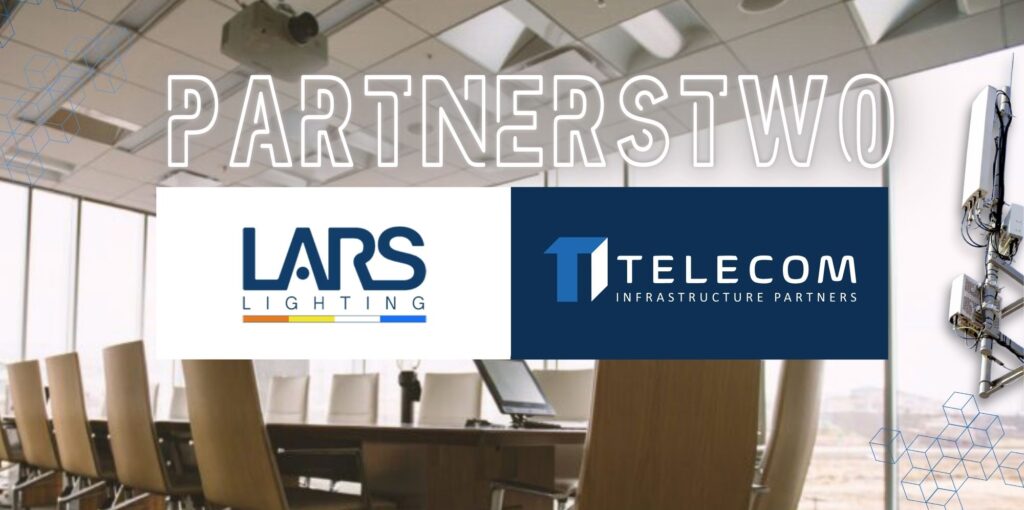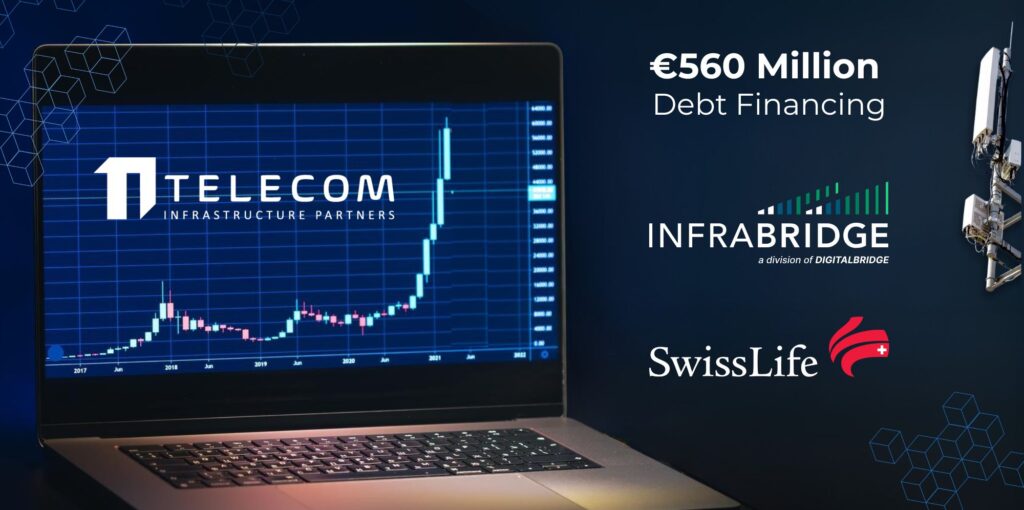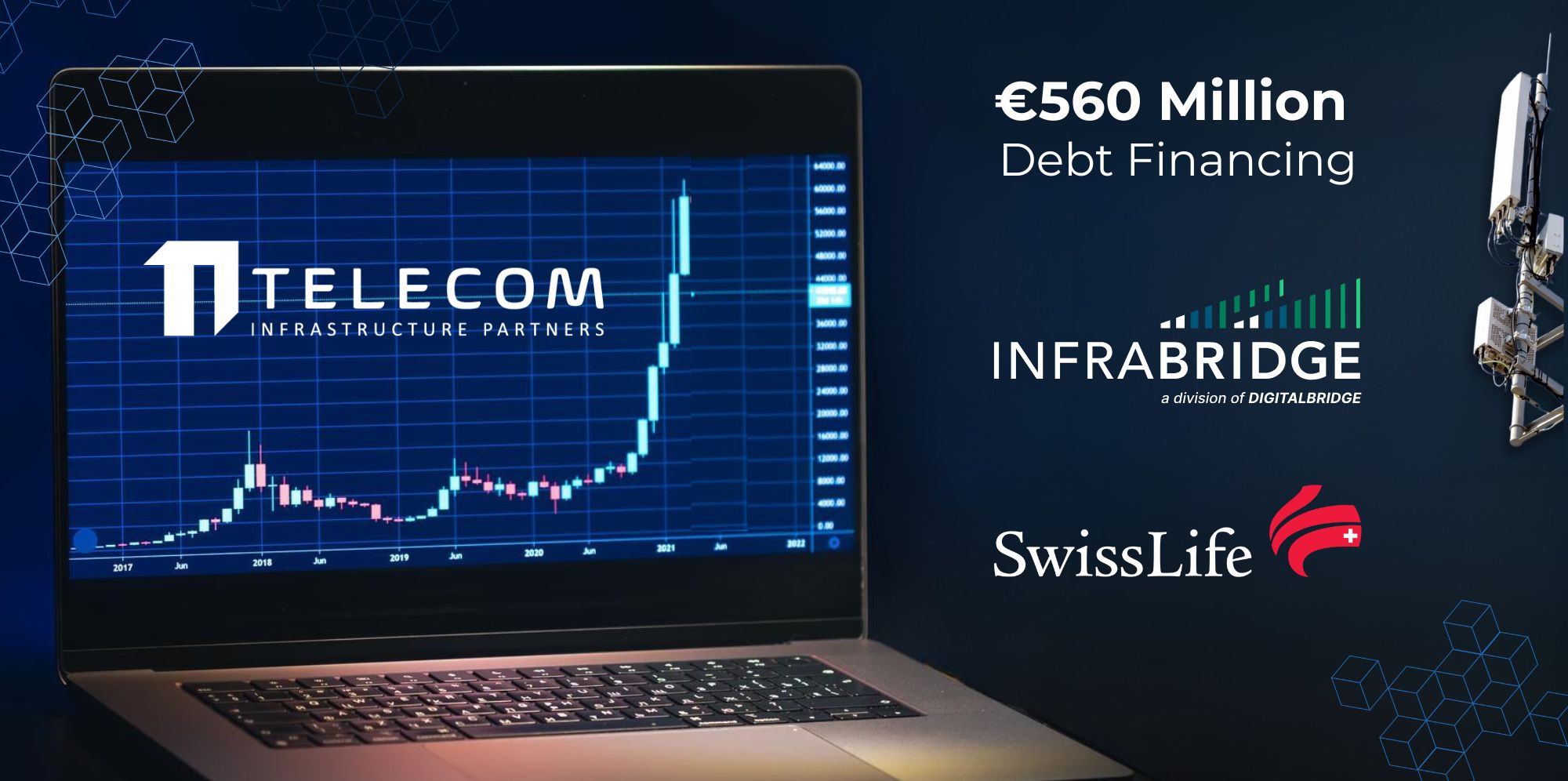Hotel chains are continually exploring innovative strategies to enhance profitability and increase the value of their properties. One highly effective approach is leasing rooftop space for GSM antenna installations.
These agreements not only generate stable, long-term revenue streams but also serve as valuable investment assets. Furthermore, by selling long-term leases to infrastructure-focused companies like Telecom Infrastructure Partners (TIP), hotels can quickly unlock capital for reinvestment, accelerating growth and competitiveness.
Revenue Potential and Investment Value
The mobile network infrastructure sector is experiencing unprecedented growth. According to GSMA Intelligence, global spending on mobile network infrastructure surpassed $200 billion in 2023 and is projected to reach $400 billion by 2025. Hotel chains are well-positioned to capitalize on this surge in demand by leveraging the following strategies:
1. Long-Term Lease Agreements: A Stable Revenue Stream
Leasing rooftop space for GSM antennas offers hotels a consistent and predictable income over extended periods. These agreements typically span 5 to 15 years, providing a solid foundation for long-term financial planning.
A 2023 TowerXchange report reveals that 80% of antenna leases on commercial rooftops are long-term, ensuring revenue stability. Importantly, these leases can be sold to infrastructure investment firms like Telecom Infrastructure Partners, allowing hotels to capitalize on future income through a single lump-sum payment. This immediate infusion of capital enables hotels to:
- Invest in property upgrades and modernizations that enhance guest experiences and competitiveness.
- Accelerate development without waiting for incremental monthly payments.
- Mitigate risks associated with lease termination, as ownership of the lease transfers to the infrastructure firm.
2. Immediate Financial Liquidity: Unlocking Frozen Capital
Selling long-term lease agreements to companies like Telecom Infrastructure Partners provides hotels with instant access to capital. According to Telecom Infrastructure Insights (2022), the average lump-sum payment for hotel properties can reach up to $250,000, depending on location and lease duration.
These funds can be strategically reinvested in:
- Modernizing infrastructure to improve operational efficiency and guest satisfaction.
- Developing new services that diversify revenue streams.
- Paying down existing debt, thereby strengthening the hotel’s financial position.
Quick payouts from antenna lease capitalization grant hotels the financial flexibility to pursue ambitious projects without resorting to external financing or loans.
3. Increasing Property Value: Enhancing Market Appeal
Installing GSM antennas and maintaining active lease agreements with reputable telecom operators can significantly boost the market value of hotel properties.
According to JLL Hotels & Hospitality (2023), properties equipped with advanced telecom infrastructure command an average of 8-12% higher market values compared to those without. This added value stems from:
- Increased investor confidence, as such properties are seen as more profitable and stable.
- Higher appraisals during sales or refinancing processes.
- Enhanced functionality, attracting more guests and improving financial performance.
Additionally, the capitalization of lease agreements provides hotels with immediate funds to further invest in renovations and technological upgrades, enhancing their appeal to future buyers and investors.
The Strategic Role of Telecom Infrastructure Partners (TIP)
Telecom Infrastructure Partners (TIP) plays a pivotal role in helping hotels monetize their telecom infrastructure. By partnering with TIP, hotels can convert long-term, predictable income streams from GSM antenna leases into one-time, interest-free payouts.
This approach allows hotel owners to:
- Access significant capital immediately, without waiting for monthly lease payments.
- Reinvest in property upgrades, new services, or debt reduction.
- Strengthen their competitive position in the market by fast-tracking development and modernization efforts.
By leveraging the expertise and financial solutions provided by TIP, hotel chains can unlock the hidden value in their properties, ensuring both short-term liquidity and long-term growth.
Eliminating Financial Risks Through Lump-Sum Payouts
Opting for a lump-sum payout eliminates the risks associated with potential fluctuations in the telecommunications market, unexpected contract terminations by operators, or unpredictable revenue streams. By partnering with Telecom Infrastructure Partners (TIP), hotels can offload the complexities of lease management, ensuring financial stability and long-term security.
Key Benefits of GSM Antenna Installation in Hotels
1. Enhanced Signal Strength and Connectivity
Installing GSM antennas on hotel rooftops significantly boosts mobile signal strength and network availability throughout the property. Reliable connectivity is a top priority for both business travelers and leisure guests, directly impacting their overall satisfaction.
In buildings with complex architectural layouts or in areas with limited coverage, antennas effectively eliminate dead zones, providing seamless signal in guest rooms, conference facilities, and communal spaces. Improved connectivity not only reduces guest complaints but also increases the likelihood of repeat business, directly enhancing the hotel’s reputation and guest loyalty.
2. Faster Data Speeds and Advanced Connectivity
GSM antennas support cutting-edge data transmission technologies like 4G LTE and 5G, essential for guests who rely on fast, stable internet. For business travelers, this translates into:
- Smooth, uninterrupted video conferencing
- Rapid file transfers
- Seamless access to cloud-based applications
Superior internet performance leads to positive guest reviews and fosters brand loyalty. Furthermore, positioning the hotel as a “tech-friendly” destination attracts tech-savvy travelers seeking properties with state-of-the-art digital infrastructure.
3. Cost-Effective Revenue Generation
Leasing rooftop space for GSM antennas offers a risk-free, passive income stream with no upfront costs. All installation, maintenance, and equipment upgrades are fully funded by telecom operators, allowing hotels to generate steady revenue without financial outlay.
Additionally, the presence of modern telecom infrastructure enhances the property’s market value, making it more attractive to investors. Hotels can further capitalize on these agreements through partnerships with Telecom Infrastructure Partners, securing a one-time, interest-free payout. This immediate infusion of capital can be reinvested into property improvements, infrastructure upgrades, or expansion projects—without incurring debt.
Why Hotels Are Prime Locations for GSM Antennas
- Optimal Signal Coverage: Tall hotel structures ensure broader, stronger signal distribution.
- Strategic Locations: Hotels are often located in high-traffic urban areas, serving large numbers of mobile users.
- Robust Infrastructure: Rooftops and exterior walls provide secure, easily accessible mounting points for antennas.
Unlocking Revenue Potential with GSM Antenna Leasing
Leasing rooftop space for GSM antennas is more than just a passive income strategy—it’s a smart, cost-effective solution for hotels to diversify revenue streams, enhance guest experiences, and boost property value. By partnering with Telecom Infrastructure Partners, hotels can transform long-term lease agreements into immediate financial gains, fostering growth, innovation, and long-term success in the highly competitive hospitality market.
Revenue Opportunities from GSM Antenna Leasing
Leasing rooftop space for GSM antennas offers hotels a lucrative and stable source of income. Lease rates vary depending on location, with average monthly revenues per antenna ranging from $1,000 to $3,000 in the United States and up to €4,000 in Europe.
Essential Elements of Lease Management
1. Strategic Contract Negotiations
Engaging legal and industry experts is crucial to secure favorable lease terms. Key considerations include:
- Rental rates
- Contract duration
- Renewal and termination clauses
Properly negotiated terms ensure maximum revenue while minimizing financial risks. Clear, well-structured agreements also protect against unforeseen changes in the telecommunications landscape.
2. Compliance and Aesthetic Considerations
Hotels must ensure that antenna installations comply with local building codes, safety regulations, and aesthetic standards. Antennas should blend seamlessly into the hotel’s design, preserving the property’s visual appeal while meeting all legal requirements.
3. Performance Monitoring
Maintaining optimal antenna performance is essential for consistent revenue and guest satisfaction. Regular inspections and real-time monitoring enable:
- Early detection of technical issues
- Rapid resolution of connectivity disruptions
This ensures uninterrupted service quality, enhancing the guest experience and reducing complaints.
4. Simplified Lease Management Through Long-Term Capitalization
By partnering with Telecom Infrastructure Partners (TIP), hotels can capitalize on long-term lease agreements, converting them into a lump-sum payout. TIP takes full responsibility for:
- Contract administration
- Negotiations with telecom operators
- Legal compliance
This partnership relieves hotels of the day-to-day management burden, allowing them to focus on core operations. Additionally, TIP ensures that contracts are continuously updated to reflect technological advancements and market changes, safeguarding future revenue streams.
Financial and Operational Advantages
1. Steady Passive Income
Leasing space for telecom antennas provides hotels with a reliable, passive income stream without significant capital investment. All installation and maintenance costs are covered by telecom operators, minimizing financial risk for hotel owners.
2. Enhanced Property Value
Modern telecom infrastructure significantly increases a property’s market appeal. According to real estate industry data, properties with state-of-the-art connectivity can command valuations up to 15% higher compared to those without such infrastructure.
Case Study: Successful Partnership with Telecom Infrastructure Partners
Mirosław Hanusz, CEO of Kinoplex, shared his positive experience working with Telecom Infrastructure Partners Poland. In a published video testimonial, he highlighted the benefits of this partnership, including stable revenue streams and professional lease management.
By collaborating with TIP, hotels can increase their revenue, enhance property value, and minimize operational risks.
Risk Mitigation Through Telecom Infrastructure Partners
1. Guaranteed Stable Income
Selling antenna lease agreements to TIP provides hotels with immediate access to capital. In one testimonial, a client described the experience as akin to “winning the lottery,” emphasizing how a lump-sum payout enabled substantial investments and the realization of long-delayed projects.
2. Protection Against Technological Shifts
TIP ensures that lease agreements evolve alongside technological advancements, such as the transition to 5G. This guarantees that infrastructure remains current and competitive. One client noted how TIP’s expertise helped them navigate the complex legal and technical challenges of modernizing telecom systems.
3. Elimination of Operational Burdens
TIP takes over all legal, administrative, and operational management, eliminating the need for hotels to engage in the daily oversight of telecom infrastructure. A client shared how TIP’s full assumption of contract negotiations and operator management allowed them to focus on other strategic business priorities.
4. One-Time, Interest-Free Payout
Hotels can secure a substantial, interest-free lump-sum payout, leading to immediate improvements in cash flow and providing the resources necessary to fund strategic initiatives. One client remarked that partnering with TIP allowed them to achieve goals that once seemed out of reach.
Example: In a testimonial, Dorota Pazdyka shared how a single decision to collaborate with Telecom Infrastructure Partners transformed her financial outlook and helped her achieve lifelong aspirations.
Optimizing GSM Antenna Placement: A Strategic Approach to Maximizing Telecom Leasing Revenue
Selecting the right locations for GSM antennas is a critical element of any successful telecom infrastructure leasing strategy. Proper placement not only enhances antenna performance but also makes properties more attractive to telecommunications operators, leading to increased revenue potential and long-term financial benefits.
Key Factors for Optimal GSM Antenna Placement
1. Structural Integrity and Roof Height
The first step in identifying suitable antenna locations is assessing the structural integrity of the building. Roofs must be capable of supporting the weight of telecommunications equipment, which includes not just antennas, but also signal amplifiers, power backup systems, and other auxiliary devices.
Building height plays a pivotal role in ensuring optimal signal propagation. The higher the antenna, the broader the coverage area and the stronger the signal quality—attributes that significantly increase the antenna’s value to telecom operators.
2. Accessibility for Maintenance
Easy, safe access to installed antennas is essential for routine maintenance and emergency repairs. Antennas should be located in areas where technicians can quickly and safely conduct servicing, upgrades, or troubleshooting. Efficient access reduces downtime, ensuring the continuous delivery of high-quality telecom services, which directly impacts operator satisfaction and guest experiences.
3. Aesthetic Considerations and Regulatory Compliance
In hotels, particularly those in the luxury segment, the visual impact of antenna installations is a key concern. Antennas should be positioned to minimize visibility from guest areas, ensuring that the building’s architectural integrity and aesthetic appeal remain uncompromised.
All installations must adhere to local building codes, safety regulations, and zoning laws. This includes securing the necessary permits and certifications to avoid legal complications.
4. Minimizing Operational Disruptions
Antenna placement should not interfere with the day-to-day operations of the hotel or diminish guest comfort. Installations must be designed to minimize noise and other potential disturbances, and all work should be scheduled to avoid disrupting hotel activities, especially during peak occupancy periods.
5. Economic Analysis and Profitability Assessment
Choosing the right location also involves a thorough cost-benefit analysis. High-rise buildings in central urban locations typically command higher lease rates, but they may also incur greater installation and maintenance costs. Balancing these factors is crucial to maximizing the profitability of telecom infrastructure investments.
The Financial Health of the Global Hospitality Industry
Understanding the broader financial landscape helps hotels make informed decisions about infrastructure investments.
- In Q2 2024, the global operating profit margin in the hospitality and tourism sector rose to 20.79%, up from 16.41% in the previous quarter. The Hotel Industry in Europe – Statistics and Facts
- In 2023, the European hotel industry generated $111 billion in revenue, making it the second-largest segment in the tourism sector, just behind vacation packages. The Hotel Industry in Europe – Statistics and Facts
- Globally, the hotel and resort market reached a valuation of $1.5 trillion in 2023, reflecting substantial growth compared to previous years. The Hotel Industry in Europe – Statistics and Facts
- In contrast, the 2020 operating profit margin fell to 18% due to the global challenges faced by the industry. 75+ Hospitality Statistics You Should Know (2025)
Strategic Investments for Staying Competitive
To remain competitive and meet evolving guest expectations, hotels frequently invest in key areas:
- Acquisition of New Properties: Expanding portfolios through the purchase of existing hotels.
- Renovations and Modernizations: Investing in refurbishments and infrastructure upgrades to align with guest expectations and industry trends.
- Implementing Advanced Technologies: Adopting smart room technologies, advanced security systems, and cutting-edge management platforms.
- Expanding Ancillary Services: Enhancing amenities such as dining, spas, conference facilities, and recreational areas to appeal to a broader market.
To finance these initiatives, hotels often leverage bank loans, leasing, and external investors to maintain financial liquidity and execute strategic projects.
GSM Antenna Leasing: A Smart Strategy for Enhancing Profitability and Property Value
Leasing rooftop space for GSM antennas offers a highly effective strategy for boosting both profitability and property value. The combination of stable, passive income, enhanced infrastructure, and strategic partnerships with telecom operators gives hotels a significant competitive edge and fosters long-term financial growth.
Partnering with Telecom Infrastructure Partners (TIP) allows hotels to unlock immediate capital while minimizing risk, making this approach even more attractive for property owners looking to maximize returns.
Telecom Infrastructure Partners: A Global Leader in Telecom Infrastructure Management
Telecom Infrastructure Partners (TIP) operates in 15 countries worldwide, continuously expanding its network and offering innovative solutions in telecom infrastructure management. TIP stands out for its commitment to ethical business practices, emphasizing transparency, trust, and long-term partnerships.
TIP’s team of Investment and Development Managers brings extensive industry knowledge, allowing them to create tailored solutions that meet the unique needs of each client.
Aleksandra Rogowska, VP and General Manager of TIP Poland, emphasizes the company’s values:
“Our partnerships are more than just business transactions—they’re about building a future rooted in innovation and trust.”
A Strategic Partnership: Telecom Infrastructure Partners & LARS Lighting
Telecom Infrastructure Partners has partnered with LARS Lighting to revolutionize telecom infrastructure management and energy efficiency in the real estate sector. This collaboration offers a unique value proposition for hotels, shopping centers, office buildings, and other commercial properties.
TIP specializes in purchasing long-term GSM antenna lease agreements, offering lump-sum payouts that eliminate the risks associated with fluctuating contracts. These funds can be allocated toward modernizing infrastructure, making the partnership with LARS Lighting particularly valuable.

Telecom Infrastructure Partners & LARS Lighting: Redefining Infrastructure Modernization
LARS Lighting, a leader in advanced lighting technology, provides intelligent LED systems capable of reducing energy consumption by up to 93%. This modernization not only lowers operational costs but also contributes to sustainability goals by significantly reducing CO₂ emissions.
Key Benefits of the TIP & LARS Lighting Partnership
- Energy and Cost Savings: Drastically reduce electricity expenses and maintenance costs.
- Sustainability: Support environmental goals aligned with EU directives like the Ecodesign Directive and Energy Roadmap 2050.
- Improved Comfort and Safety: Smart lighting systems enhance the quality of lighting, contributing to guest comfort and safety.
- Financing Modernization: Funds from TIP enable lighting upgrades without using internal resources.
Piotr Podszus, VP of International Sales at LARS Lighting, highlights the partnership’s potential:
“Our collaboration with Telecom Infrastructure Partners Poland allows us to deliver cutting-edge solutions that combine LARS Lighting technology with TIP’s infrastructure expertise. This results in significant savings, improved comfort and safety, and strong support for sustainable development goals.”
Conclusion: Unlocking Long-Term Value with TIP
By combining telecom infrastructure leasing with energy-efficient modernization, hotels and commercial property owners can achieve sustainable financial growth, enhanced property value, and a solid commitment to sustainability. Partnerships with Telecom Infrastructure Partners offer a comprehensive strategy that ensures long-term profitability, reduced operational risks, and a competitive edge in today’s dynamic market.
TIP and LARS Lighting: Pioneering the Future of Property Management
The partnership between Telecom Infrastructure Partners (TIP) and LARS Lighting represents a forward-thinking approach to property management, seamlessly blending financial stability with technological innovation. By integrating cutting-edge telecom infrastructure with advanced energy-efficient solutions, this collaboration empowers property owners to gain a distinct competitive advantage in the market.

Monetizing Your Telecom Lease: How Much Is Your Mobile Phone Mast Worth?
If you’re considering selling your telecom lease, understanding its value is crucial. Factors such as location, contract terms, and the type of installed equipment play significant roles in determining how much your mobile phone mast or telecom lease is worth. Partnering with industry leaders like TIP ensures you receive maximum value through strategic negotiations and capitalization opportunities.
TIP Secures €560 Million in Debt Financing: A Groundbreaking Milestone
On January 13, 2025, Telecom Infrastructure Partners (TIP) finalized a €560 million debt financing deal, marking a pivotal moment in the company’s rapid growth trajectory. Achieved just three years after TIP’s founding in 2021, this landmark transaction underscores the company’s strong financial foundation and its visionary approach to the future of digital infrastructure.
Fueling Global Expansion and Technological InnovationThe capital, secured with the backing of InfraBridge (a division of DigitalBridge) and Swiss Life Asset Managers, will propel TIP’s continued global expansion and support the implementation of innovative solutions for property owners and telecommunications operators worldwide.
Eric Overman, CEO of TIP, emphasized the significance of this achievement, noting that it reflects both investor confidence and TIP’s growing influence within the global telecommunications sector.
Strengthening TIP’s Leadership in Digital Infrastructure
Collaborations with prominent industry players like InfraBridge and Swiss Life Asset Managers reinforce TIP’s position as a key player in the digital infrastructure space. This strategic alliance positions TIP for sustained growth, enabling the company to drive global connectivity initiatives and shape the future of telecom infrastructure management.
Sources:
- Telecom operators eye a $400 billion opportunity in the enterprise sector – GSMA Intelligence.
- What is a DAS system and what are its benefits?
- Private DAS Networks – Service Offerings – Telecom Infrastructure Partners.
- How modern technologies influence accommodation choices for business and leisure travelers – SW Research for Samsung Poland.
- How 5G Technology is Transforming Cities.
- How Small Cell Networks Can Enhance Hotel Connectivity.
- What is a Subordination, Non-Disturbance, and Attornment (SNDA) Agreement and Why Do You Need One?
- LARS Lighting.
- Telecom Infrastructure Partners Secures €560 Million in Debt Financing.



